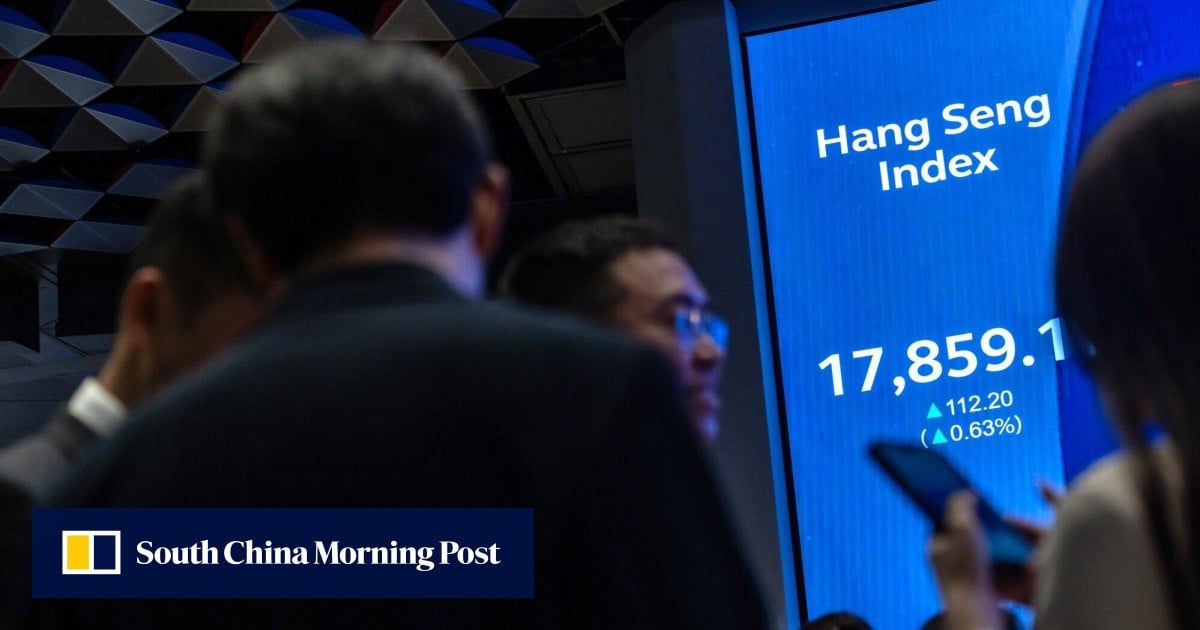Hong Kong home prices slump to lowest in 7 years, official index shows, with little relief in sight in 2024
The housing market in Hong Kong continued to decline, with prices in November falling for the seventh month in a row to their lowest level in almost seven years, according to government data.
Property agents said house prices would continue to decline in December as the city’s slowing economy and high interest rates undercut demand.
The private residential price index stood at 316 points in November, the lowest level since February 2017 and a sharp drop from 322.4 points in October, according to the Rating and Valuation Department. The gauge has fallen every month since May, racking up a cumulative 10.78 per cent loss.
In the first 11 months of the year, property prices fell by 5.59 per cent.
Things have not improved this month, according to Derek Chan, head of research at Ricacorp Properties.
“Home prices in December continue to fall, making a full year decline of 7 per cent,” he said.
Property prices are down about 20.6 per cent from the market’s peak in September 2021.
Small units of below 431 square feet fell 3.47 per cent month on month in November, and were down 8.9 per cent in the first 11 this year.
The index of large residential units with a saleable area of at least 1,075 square feet dropped by 1.94 per cent month-on-month. In the first 11 months of this year, it fell by 6.17 per cent.
“The residential market is still being impacted by high interest rates, insufficient purchasing power and a high volume of unsold inventory,” said Martin Wong, director and head of research and consultancy for Greater China at Knight Frank.
“The adjustments of various stamp duties have had limited impact in boosting home prices and transaction volume.”
He was referring to a relaxation of stamp duties announced by Chief Executive John Lee Ka-chiu in his latest blueprint for the city in a bid to inject life back into the flagging market.
Lee said a special stamp duty, equivalent to 10 per cent of the home price, would be waived for owners reselling their property after two years, a reduction from the original three years.
The buyers’ stamp duty that applies to non-permanent residents, and for additional properties, was halved to 7.5 per cent from 15 per cent.
Wong agreed with Ricacorp’s Chan with his full-year forecast.
“We expect the home prices to drop 7 per cent this year,” Wong said. “The price trend for 2024 will be an L shape, dipping 3 to 5 per cent in the first half of the year and then staying relatively stable in the second half.”
While residential property prices are falling, rents continue to rise. They have risen for 10 consecutive months, with the residential rental index reaching 186.8 points in November, a monthly increase of 0.65 per cent.
That is the highest level in almost four years and represents a cumulative increase of 7.6 per cent in 10 months.
Sammy Po Siu-ming, the CEO of Midland Realty’s residential division for Hong Kong and Macau, estimates that rents have increased 6.43 per cent for the whole of 2023.
He expects them to climb about 10 per cent next year, outperforming property prices, as interest rates are cut and with the prospect of the government announcing the withdrawal of market cooling measures in its 2024-25 budget.
Hong Kong may have seen the last of the interest rate hikes in the current cycle, sparing homebuyers higher borrowing costs, though analysts have warned this may not prevent house prices from slipping further.
The Hong Kong Monetary Authority (HKMA) maintained its base rate at 5.75 per cent in December, after the US Federal Reserve held interest rates steady and signalled that the historic monetary policy tightening engineered over the last two years may have ended.
The city’s de facto central bank has followed the Fed in lockstep since 1983 on interest rates policy under its linked exchange rate system to preserve the local currency peg to the US dollar.





